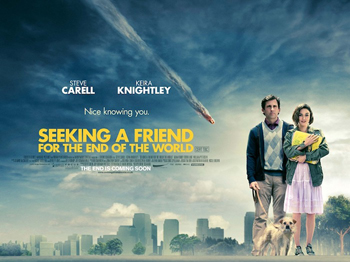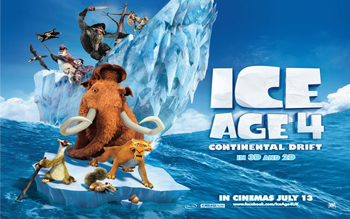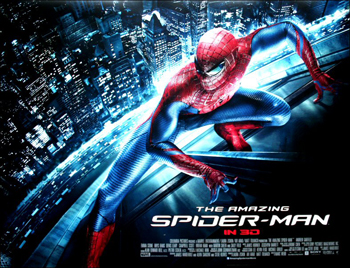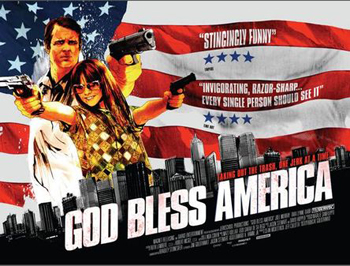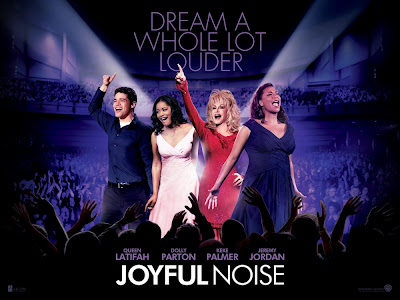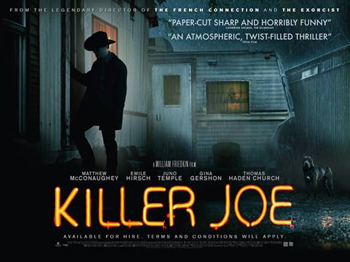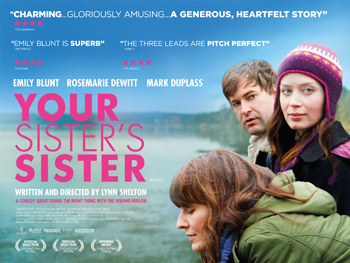The Dark Knight Rises ****
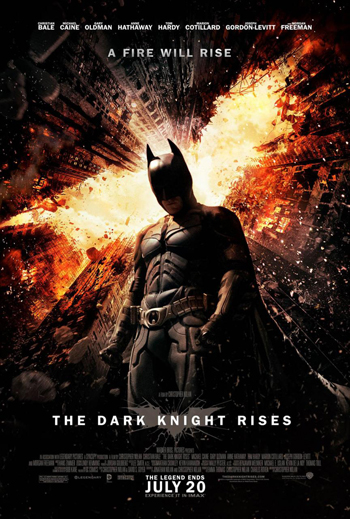 Gotham City is once more set as an unsettling place to live with its future in the balance, allowing visionary film-maker Christopher Nolan the opportunity to propel us into the depths of human despair and depravity in his latest dark saga, The Dark Knight Rises (TDKR). But with this film, which completes the story arc started with his Batman Begins (2005), Nolan paradoxically brings a renewed hope for a fresh start, and leaves the last few scenes open to new interpretation, which allows the film to end on a high note and full of intrigue that “it’s never over until it’s truly over”.
Gotham City is once more set as an unsettling place to live with its future in the balance, allowing visionary film-maker Christopher Nolan the opportunity to propel us into the depths of human despair and depravity in his latest dark saga, The Dark Knight Rises (TDKR). But with this film, which completes the story arc started with his Batman Begins (2005), Nolan paradoxically brings a renewed hope for a fresh start, and leaves the last few scenes open to new interpretation, which allows the film to end on a high note and full of intrigue that “it’s never over until it’s truly over”.
After crime-fighting crusader Harvey Dent is labelled a hero by Gotham’s authorities – much to Commissioner Gordon’s (Gary Oldman) private despair, cut down by the murderous Batman, crippled Bruce Wayne (Christian Bale) becomes a virtual recluse from high society at his home. But he is forced out of retirement after stumbling across beautiful jewel thief Selina (Anne Hathaway) with her hands in his safe. Her invasion sparks something uglier rising in Gotham: “There’s a storm coming, Mr Wayne”. That storm is being engineered by insane missionary-for-hire Bane (Tom Hardy) who is bringing a new Robin Hood-style army to the city to right the injustices between the haves and have-nots. However, there is something far sinister at the core, and Gotham needs a leader – it needs Batman to rise again.
Nolan’s latest film is as ambitious as it is flawed in plot at times – take the prison scene escape by Wayne and his subsequent arrival in lock-downed, cut off Gotham for example. However, from its breathtaking opener, TDKR spells high entertainment value as big-screen blockbusters go, so it doesn’t disappoint in this respect. It also has a good balance of personal moments of reflection and character development as well as high-octane, old-school, real-time action than merely CG trickery. There is a true sense of Nolan directing a grand operatic event with a cast of thousands, accompanied by a pumping score like a rousing battle rally cry.
The big-named cast of Bale, Oldman and Michael Caine as the ever faithful and tormented Alfred return with self-assured performances, picking up where they left off without a hitch. However, it’s probably Hardy as beefcake Bane and naughty kitty Hathaway who steal a lot of the scenes. Hardy, physically reminiscent of his Bronson character here as Bane keeps him a growling enigma, and like so many of Nolan’s characters, intriguingly suggests shades of grey to his persona and not pure evil as first impressions go, leaving us wondering where his character ends up. Any initial worries about not being able to understand the mask-clad villain evaporated at our screening.
Hathaway takes the playful elements of Michelle Pfeiffer’s Catwoman from Burton’s 1992 fantasy film but gives her a compelling darker edge. This Catwoman stands as a leading force to be reckoned with, rather than an attractive, scatty sidekick. Without her pivotal role, the stage for the changes is not set as she ignites the fire. Nolan again makes sure he challenges our initial perceptions of good and bad characters, ever breeding a sense of foreboding to the story that is TDKR’s horror/thriller element.
TDKR also has the ‘normal guy’ hero to champion, like some Bruce Willis Die Hard throwback in aspiring detective Blake, evenly played by Joseph Gordon-Levitt. Blake and Gordon are the brains behind the rescue operation, where Nolan’s fantasy adventure meets good old-fashioned cop show work, keeping a grounded and purposeful element to the ‘superhero’ antics and man’s return to civil society.
However, among the wordy dialogue necessary to keep us up to speed with whose relationship and background to whom that feels stretched out at times, there are some fascinating social ills laid bare and parallels to today’s uneven wealth that also provide an empathy for Gotham’s underworld. Nolan again places his mythical world scenarios firmly in our own, allowing us to question right from wrong while being merely spectators to the possible downfall of society, as we know it. There are so many layers that nicely blend into making the whole context a richer viewing experience while not forgetting the expected thrills.
As uneven as the plot is at times, Nolan commendably retains the Batman’s beating black heart in TDKR, with lead characters ever challenging our perceptions in their decision-making and moving the goal posts to keep things fresh. There is also a nice twist at the end too, that most won’t see coming. This is maybe a chapter to end all chapters, as Nolan’s sense of responsibility is very evident and faithful in his execution. If you have the opportunity to watch in IMAX, even better, to truly get a sense of scale of the Nolan operation and be immersed into his exciting and fractured world. The terror is in the parallels with reality, which is TDKR’s core power.
4/5 stars
By @FilmGazer

